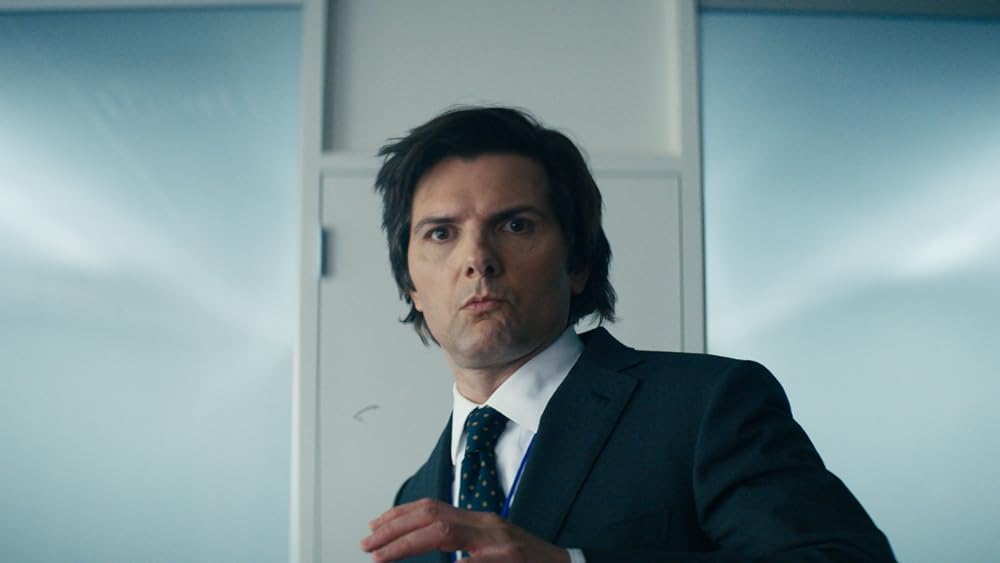“Severance”: When Work-Life Balance Gets a Whole New Meaning
Ever had one of those days where you wish you could just forget about work the moment you clock out? Well, in the world of Apple TV+’s mind-bending series “Severance,” that’s not just a daydream – it’s a reality. But as with all things that sound too good to be true, there’s a catch. And boy, is it a doozy.
“Severance” introduces us to Lumon Industries, a mysterious mega-corporation that’s taken the concept of work-life balance to a whole new level. Their solution? A procedure called “severance” that surgically divides your memories between your work life and your personal life. Sounds neat, right? Clock in, and your “work self” takes over with no memories of your outside life. Clock out, and your “home self” has no idea what happened during the workday. It’s like having two completely separate lives in one body.
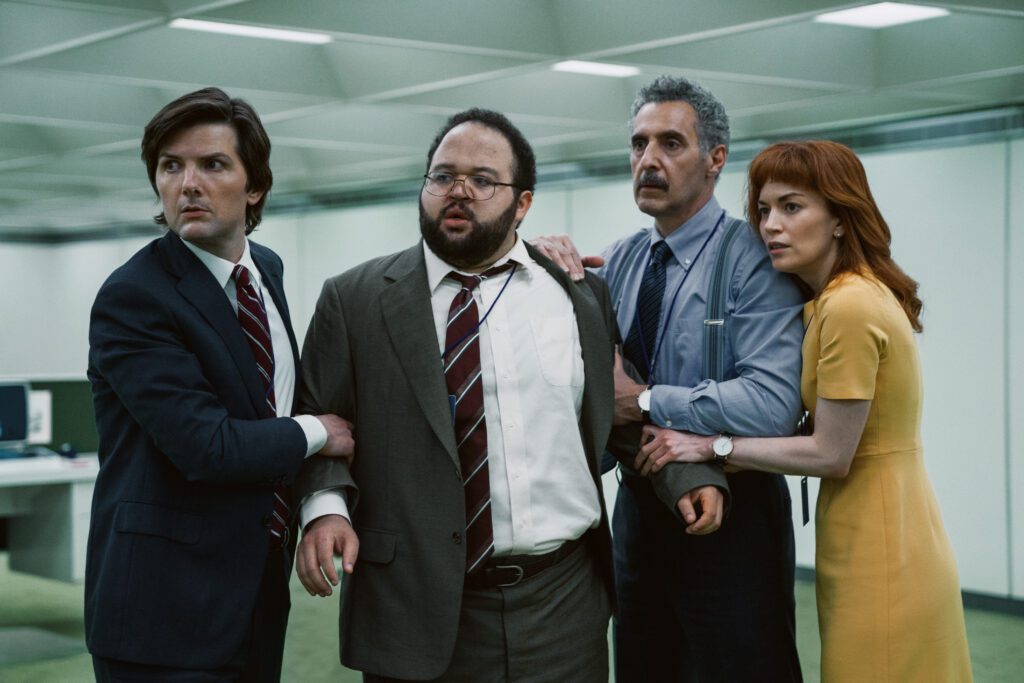
Our main guide through this bizarre world is Mark Scout, played by the always-awesome Adam Scott. Mark’s “outie” (that’s what they call the outside-world version) is a sad sack still grieving the loss of his wife. His “innie” (the work version) is a dedicated employee who has no idea why he chose this life but is determined to be good at it. It’s like watching two different characters played by the same actor, and Scott nails both versions.
Mark works in the Macrodata Refinement department at Lumon, a job that’s as vague and confusing as it sounds. Along with his co-workers – the rule-following Irving, the sarcastic Dylan, and the newly-hired Helly – Mark spends his days staring at screens full of numbers, looking for… something. What exactly? They have no idea. It’s like the world’s most boring video game, except you can’t rage quit.
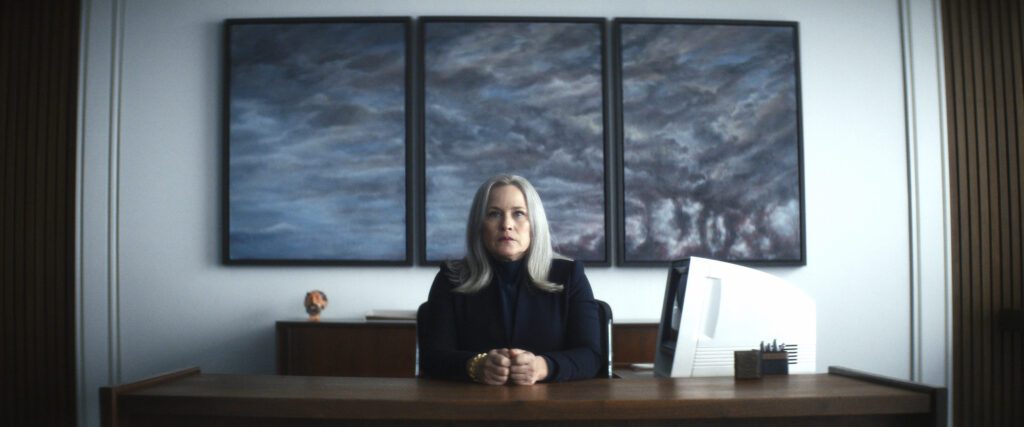
But here’s where things start to get weird (well, weirder). When a former colleague reaches out to Mark’s outie with warnings about Lumon, both versions of Mark start to question everything they thought they knew. Is Lumon really the benevolent company it claims to be? What are they really doing in that office? And most importantly, what happens if the barrier between innie and outie starts to break down?
As Mark and his colleagues start digging deeper, “Severance” takes us on a wild ride through corporate conspiracies, existential questions, and some of the most unsettling office parties you’ll ever see. Seriously, the Lumon Christmas party makes your average office shindig look like Mardi Gras.
One of the things that makes “Severance” so captivating is its unique visual style. The Lumon offices are a retro-futuristic fever dream – all stark white corridors, vintage computers, and an layout that seems designed to make you lose your mind. It’s like if Stanley Kubrick designed an IKEA, but creepier. The contrast between this sterile work environment and the cozy, lived-in feel of the outside world is jarring in the best possible way.
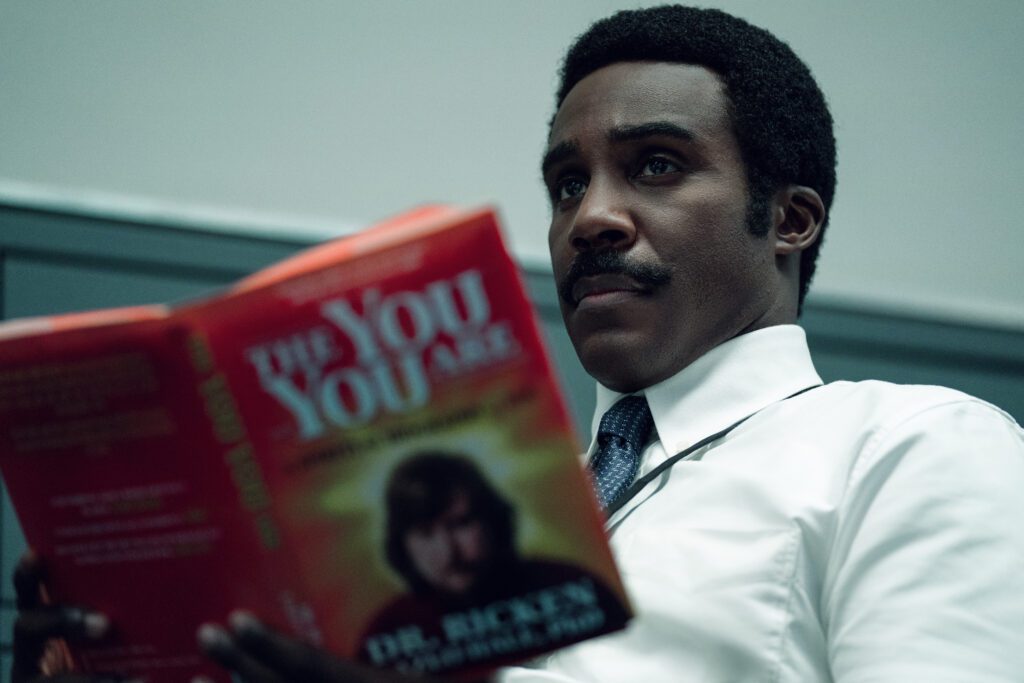
But “Severance” isn’t just about cool visuals and mind-bending concepts. At its heart, it’s a deeply human story about identity, free will, and the nature of consciousness. It makes you question: If you have no memories of your life outside work, are you still you? Do your innies and outies have the same rights? And is it ethical to essentially create a new person whose entire existence is just to work?
The show doesn’t shy away from the darker implications of its premise either. We see characters struggling with the knowledge that half of their life is a complete mystery to them. There’s a particularly gut-wrenching storyline involving Helly, whose innie is desperately unhappy but whose outie refuses to quit. It’s like being trapped in a job you hate, but taken to a horrifying extreme.
As the series progresses, we’re introduced to a cast of fascinating characters both inside and outside Lumon. There’s Harmony Cobel, Mark’s seemingly friendly boss who might be hiding some sinister secrets. Zach Cherry’s Dylan provides much-needed comic relief as he tries to imagine what his outie’s life might be like. And John Turturro and Christopher Walken give standout performances as two co-workers whose relationship might be more than just professional.
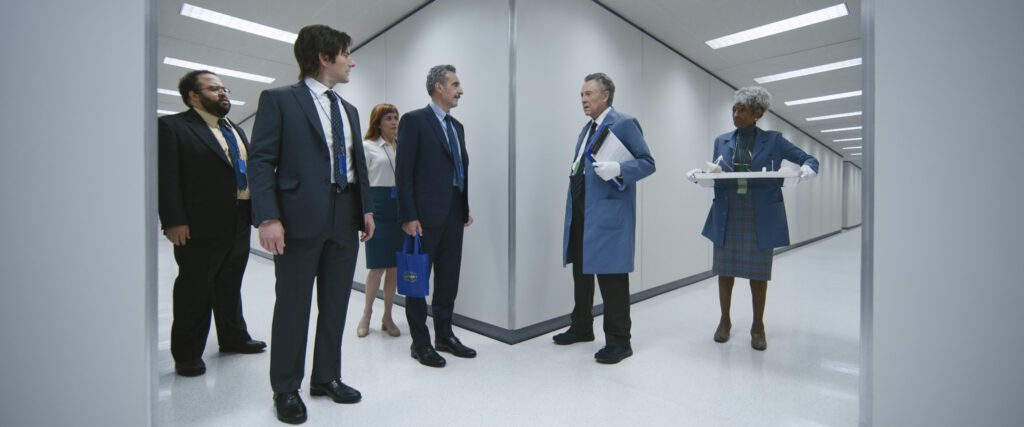
One of the coolest things about “Severance” is how it plays with genre. One minute it’s a tense thriller, the next it’s a darkly funny satire of corporate culture. There are elements of sci-fi, horror, and even romance woven throughout. It keeps you on your toes, never quite sure what to expect next.
The mysteries deepen with each episode, as our characters uncover more about Lumon’s true nature and the full extent of the severance procedure. There are secret departments, hidden messages, and enough conspiracies to make your head spin. But the show never loses sight of its characters amidst all the twists and turns. You’ll find yourself deeply invested in their struggles, rooting for them to uncover the truth (and maybe find a way to reintegrate their severed selves).
By the end of the first season, “Severance” builds to a nail-biting climax that’ll have you on the edge of your seat. Without spoiling anything, let’s just say it ends on a cliffhanger that’ll make you want to scream at your TV. In a good way, of course.
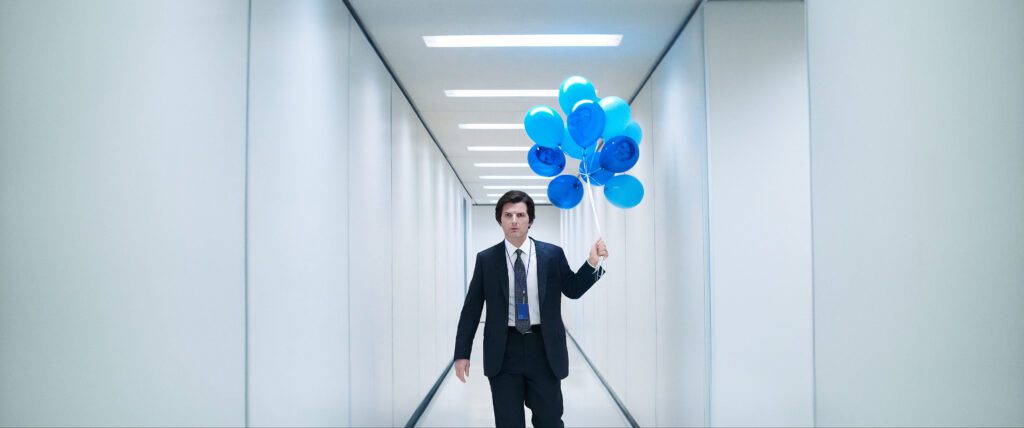
What really sets “Severance” apart is how it makes you think about your own life and work. It’s a sharp critique of modern work culture, where we’re often expected to be “always on” and leave our personal lives at the door. But it also raises deeper questions about the nature of self, memory, and what truly makes us who we are.
So, if you’re in the mood for a show that’ll mess with your mind in the best possible way, “Severance” is an absolute must-watch. It’s smart, stylish, and genuinely unlike anything else on TV right now. Just be warned: after watching, you might find yourself eyeing your office elevators a bit suspiciously, wondering if that ride down to the lobby is really taking you where you think it is.
And who knows? By the end, you might just find yourself appreciating both your work life and your home life a little bit more. After all, at least you get to remember both of them!
